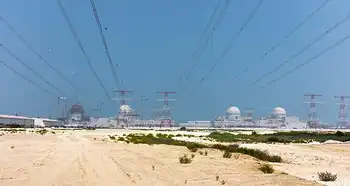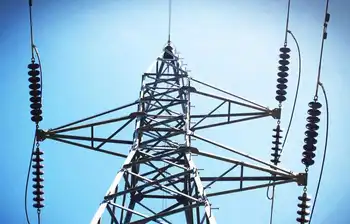New Brunswick energy sector in flux
SAINT JOHN, NEW BRUNSWICK - The chairman of a Senate committee charting a vision for Canada's energy sector is anxiously awaiting the findings of a commission examining New Brunswick's uncertain situation.
Quebec's Conservative Senator David Angus said the province has an uphill battle to fight at the provincial utility, which makes a report by the energy commission run by co-chairmen Bill Thompson and Jeannot Volpe particularly "interesting".
"Things are in a state of flux," Angus said, after a day of hearings in Saint John.
"New Brunswick has a big hole to dig out, in terms of the financing of New Brunswick Power and their debt load."
Senators from the standing committee on energy, the environment and natural resources heard from a civil servant at NB Power, industry people, professors, politicians and an environmental group, part of a regional tour ahead of their report on a future national energy strategy.
They peppered Keith Cronkhite, NB Power executive director of business development and strategic adviser, on the long-delayed Point Lepreau nuclear plant refurbishment, among other issues.
Cronkhite said Point Lepreau, slated to be back online by the fall of 2012, will be a "key contributor" to rate stability going forward at a time when fuel costs are rising along with the operating costs of provincial companies, which are crying for lower power rates.
"New Brunswick is one of the most electricity-intensive economies of the world," Cronkhite said, pointing out New Brunswick companies that operate in forest products, mining and petroleum industries compete with firms in provinces and states in North America with lower power rates.
"It is therefore important that NB Power improves or maintains its electricity rate competitiveness with these jurisdictions."
Because of its electricity-intensive industries, New Brunswick's economy is second-most reliant on electricity in Canada — behind Quebec — and among the top five most electricity-intensive economies in the world.
But due to a drop in demand, NB Power can supply the province's needs for the next 15-20 years, Cronkhite said.
Still, the Crown utility has to address aging infrastructure, he said, adding that the Canadian Electricity Association predicts the power and utilities sector in Canada will invest more than $220 billion between 2007 and 2030 in utility infrastructure renewal.
The Point Lepreau refurbishment, the largest renewal project on the books for the province right now, is more than three years behind schedule and upward of $1 billion over budget.
Conservative B.C. Senator Richard Neufeld wondered whether with Point Lepreau operating, New Brunswick would be a net importer or exporter of energy.
Cronkhite said that except during winter, the province would be exporting 300-400 megawatts of power when Point Lepreau comes back online.
Liberal Senator Grant Mitchell, from Alberta, asked whether New Brunswick had aggressive plans to reduce carbon emissions like its neighbour, Nova Scotia, which wants 25 per cent of its electricity to come from renewable sources by 2015.
Cronkhite said carbon dioxide reductions are more relevant "on a federal scale," and that the province cannot prematurely close down its coal and thermal facilities without "having a serious impact on rates."
The coal-fired power plant in Belledune isn't slated to shut down until 2038, he said.
After a day of meetings, Premier David Alward met the senators in a closed-door session with Energy Minister Craig Leonard, Environment Minister Margaret- Ann Blaney and Natural Resources Minister Bruce Northrup.
Leonard said the top issue during the wide-ranging discussion was regional collaboration on energy senators were interested in New Brunswick's take on Nalcor Energy's massive 824-megawatt Muskrat Falls hydroelectric project planned for Labrador — part of Newfoundland's Lower Churchill Project.
"It would provide a new source of energy for us and certainly there would be some transmission opportunities there as well," Leonard said, adding the region could benefit from working together on system operation and energy efficiency.
Related News

On the road to 100 per cent renewables
WASHINGTON - The Union of Concerned Scientists joined with COPAL (Minnesota), GreenRoots (Massachusetts), and the Michigan Environmental Justice Coalition, to better understand the feasibility and implications of leadership states meeting 100 percent of their electricity needs with renewable energy by 2035.
We focused on 24 member states of the United States Climate Alliance, a bipartisan coalition of governors committed to the goals of the 2015 Paris Climate Agreement. We analyzed two main scenarios: business as usual versus 100 percent renewable electricity standards.
Our analysis shows that:
Climate Alliance states can meet 100 percent of their electricity consumption with renewable energy by 2035. This holds true even with strong…




